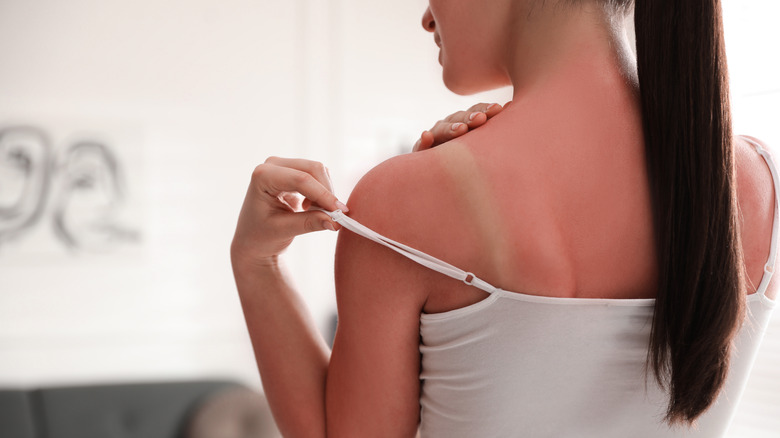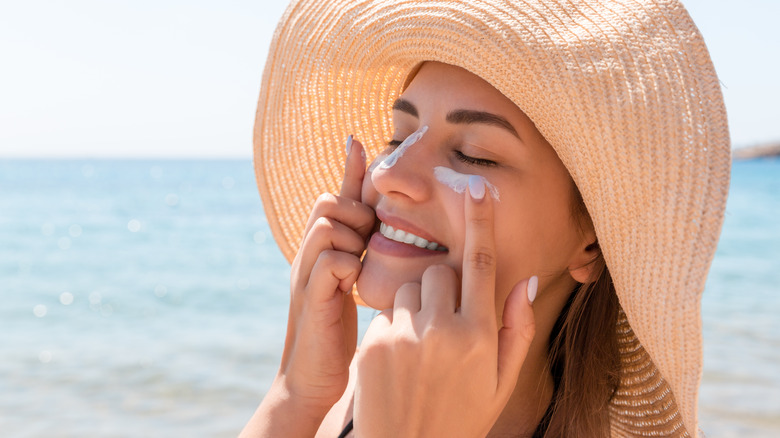This Is What You Should Do When Your Sunburn Starts Peeling
You've probably stayed out in the sun a little too long before. You've also probably experienced peeling skin as well, which is a common problem after sunburns. Peeling is your body's way of repairing the skin after it has been damaged from UV exposure. "The sun has essentially destroyed the top layers of skin, and now your body needs to remove the damaged cells and replace them with newer, healthier cells," dermatologist Rachel Nazarian, MD, FAAD, told Refinery29. Peeling usually starts a couple of days after you get sunburned and can go on for up to two weeks. However, the entire healing process can take months because a severe sunburn causes layers of damage to your skin.
While there's nothing you can do to prevent your sunburn from peeling, you can make the process more comfortable for yourself. Topical sunburn treatments can be purchased at drugstores and contain ingredients like ceramides to help soothe your damaged and swollen skin. Moisturizing the area several times a day can keep it from getting itchy and help the healing process happen more quickly. Avoid harsh soaps while your sunburn heals, as these can cause irritation and make the peeling even worse.
Avoid peeling by protecting your skin from the sun
The only way to keep your skin from peeling after a sunburn is to not get sunburned in the first place. Your skin gets sunburned after being exposed to too much UV light (via Mayo Clinic). UV, or ultraviolet, light is emitted through sunlight, lamps, tanning beds, and other artificial sources. Your skin is able to produce melanin to protect you from some sun exposure, but too much exposure is what causes your skin to burn.
UV exposure can lead to a myriad of skin issues, including wrinkles, dark spots, and skin cancer. Wearing sunscreen is the easiest and most effective way to block the sun's harmful rays and keep your skin healthy. According to the Skin Cancer Foundation, wearing SPF 15 sunscreen every day can decrease your risk of developing skin cancer by up to 50%. You should choose at least SPF 30 sunscreen if you're going to be outside. It should be applied to all skin that is exposed to light, including your face, ears, hands, arms, and feet. Sunscreen also needs to be reapplied every two hours to be most effective.


